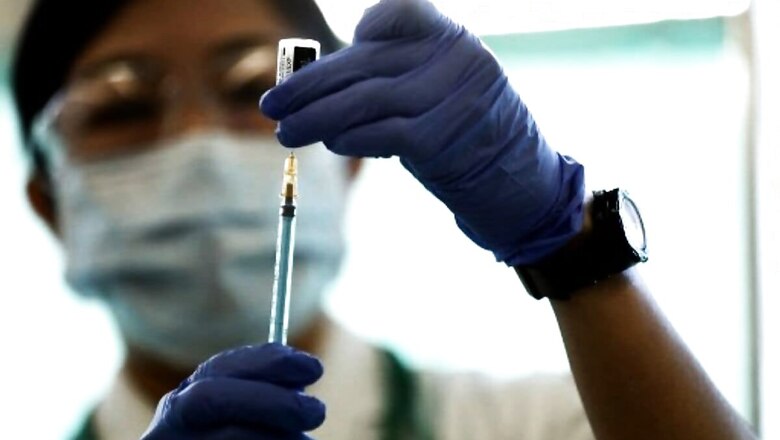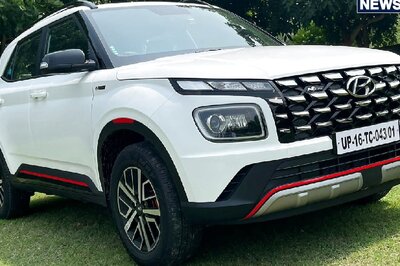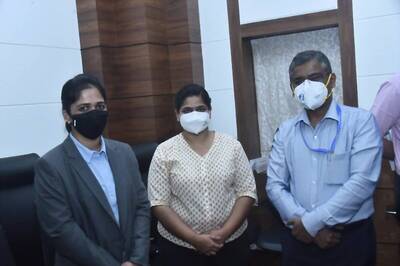
views
The world rose to the news of a western vaccine being authorized for use in the UK on 2 December 2020. Since then, we are witnessing the biggest vaccination campaign in the history of mankind. Most of it seems well coordinated, but fault lines have started to appear as expected.
Till 19 February, 1 pm IST, more than 193 million vaccines had been administered across 87 countries. The vaccine drive is being led by Israel, followed by the UAE, the UK, the US, and others. As per Anthony Fauci, Director of National Institute of Allergy and Infectious Diseases, US, a return to normalcy in the US would require vaccinating 70-80 per cent of the population. If we extrapolate his comments on a global scale, arguing that roughly the same population would require immunization, it is estimated by Bloomberg that roughly 4.8 years are needed to cover 75 per cent of the population with a two-dose vaccine, given the current global average rate of 6.47 million doses per day.
There are, however, vast differences between vaccination rates and patterns of countries. Israel, for example, has already vaccinated 31.4 per cent of its population with two doses, and 46.6 per cent with one dose. The UK has vaccinated 24.6 per cent people with one shot but only 0.9 per cent with two doses. The US has given one shot to 12.6 per cent and both shots to 5.1 per cent of its population. For European Union (EU), it is 3.5 per cent and 1.9 per cent for one and two doses, respectively. On the other hand, data from South East Asian and African countries is both patchy and not encouraging. India has vaccinated 0.7 per cent of its population so far with a single dose, while for Bangladesh, the figure stands at 1.1 per cent.
Israel and the UAE are expected to reach 75 per cent target of two doses in the next two months. The UK has even given a timeline of four-eight months, pinning mid-July as the most probable time. The US would need 10 months, while India would need almost 10 years to reach 75 per cent target at current vaccination rate.
Further measures such as pre-travel and post-arrival negative-COVID test reports, quarantine for various durations, stoppage of flights from some destinations (UK has put 33 countries, including UAE, with high risk of mutant strain spread, on travel red list; only British citizens and residents are allowed to come from these countries and will have to quarantine for 10 days at hotels), banning non-essential travel from and into the country, further lockdowns, instituting Vaccine or COVID-immunity passports, etc. are being adopted or discussed by various countries. Denmark has already introduced vaccine-passport, Sweden and the UK are considering the same—the argument against it being it would be “discriminatory”.
The Fault lines appear
However, even with such preparedness, there are some catches. None of the vaccines, so far, have been recommended for children. With a sizeable population (children) being unvaccinated, even if all the adults receive a vaccine, we may still see outbreaks.
The effects of vaccines on mutant strains have not been fully proven yet. South Africa is the latest country to have blocked AstraZeneca vaccine roll-out for its unproven effect on mutant strain prevalent in the country. Switzerland and the US have not approved it either. Moderna has stated its vaccine is effective against the UK and South African variant, but has recommended adding a second booster, thereby stretching the timeline. In a small study involving 20 people, Pfizer vaccine has demonstrated effectiveness against the UK variant strain.
ALSO READ| Covid-19 Vaccines: How Global Research Answers FAQs
The western world has signed advance contracts with most western pharma firms—Pfizer/BioNTech, Moderna, AstraZeneca, Johnson & Johnson, Novavax and the like. Middle Eastern and some Asian countries have placed reliance on Chinese and Russian vaccines. An expected vaccine race has sort of begun. This is exposing the fault lines.
We saw vaccine tensions between the UK and EU couple of weeks ago. The EU demanded AstraZeneca provide it with vaccine doses from factories situated on the UK soil, when the company expressed its inability to provide the requisite doses from EU factories. When met with negative response, it threatened to block the Pfizer factories in EU from exporting vaccine to the UK, which gets its supplies from Belgium. The Irish backstop of Brexit Agreement became a sour point and the EU threatened to invoke Article 16 of the Northern Ireland Protocol of Brexit to stop vaccine exports to Northern Ireland (and from there to the rest of the UK).
Vaccine Diplomacy
Although central and western European countries have placed reliance on western vaccines, recent adoption of Chinese vaccine by Serbia has opened the doors of EU to Chinese vaccines. Turkey, Hungary, Bosnia, Austria, Czech Republic and others have expressed interest in Chinese and Russian vaccines, thereby extending their influence. At least 28 countries, according to Chinese media reports, have placed purchase agreements with China for vaccine.
India has supplied homemade vaccine (Covishield, based on the AstraZeneca vaccine and Covaxin, an indigenous production) to 15 countries and about 25 countries are at various stages of procurement under the flagship Vaccine Maitri programme. India has grouped these exports into three categories—for poor countries, countries which are price-sensitive, and countries which are dealing directly with the pharmaceutical companies. Since Covaxin (produced by Bharat Biotech) was launched without phase-3 trials being complete, the data procured from these vaccinations—home and abroad—would serve as a phase-3 trial without any cost to the company and would be invaluable to market Covaxin in commercially profitable markets like the US and Brazil, where the company has already signed agreements for export and outsourcing production.
ALSO READ| India’s Battle Against Coronavirus: A Year of Stress and Success
Vaccine seems to have become a prominent vehicle for extending global influence. A growing worry amongst scientists, however, is that the African continent and some other financially unstable countries might not be able to procure the requisite number of vaccine doses, leading to blind spots of vaccination. Many countries have not administered any vaccine shots yet. Whether this leads to a vaccine apartheid remains to be seen. Forming a vaccine-UN could be an option to resist such a trend.
(This article is the first in a series on Covid-19 and vaccines by the author)
Read all the Latest News, Breaking News and Coronavirus News here




















Comments
0 comment